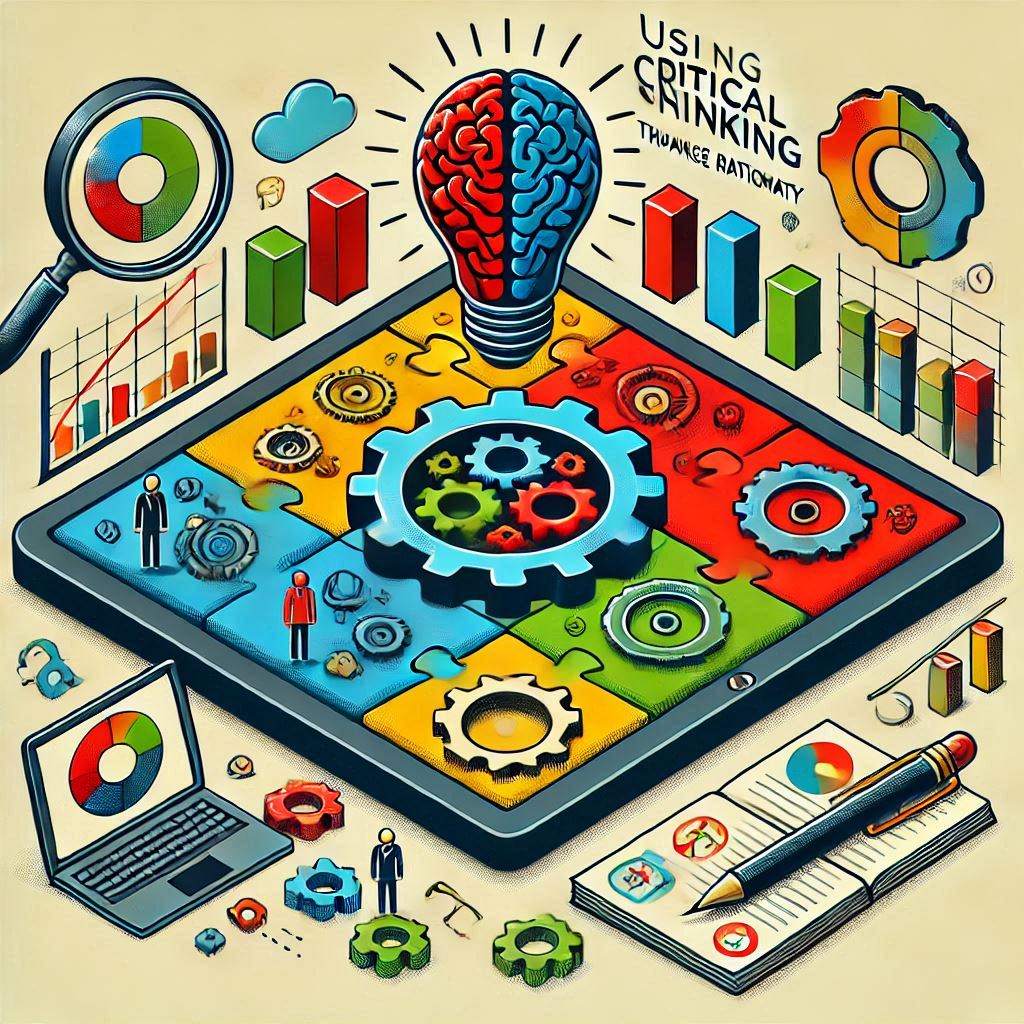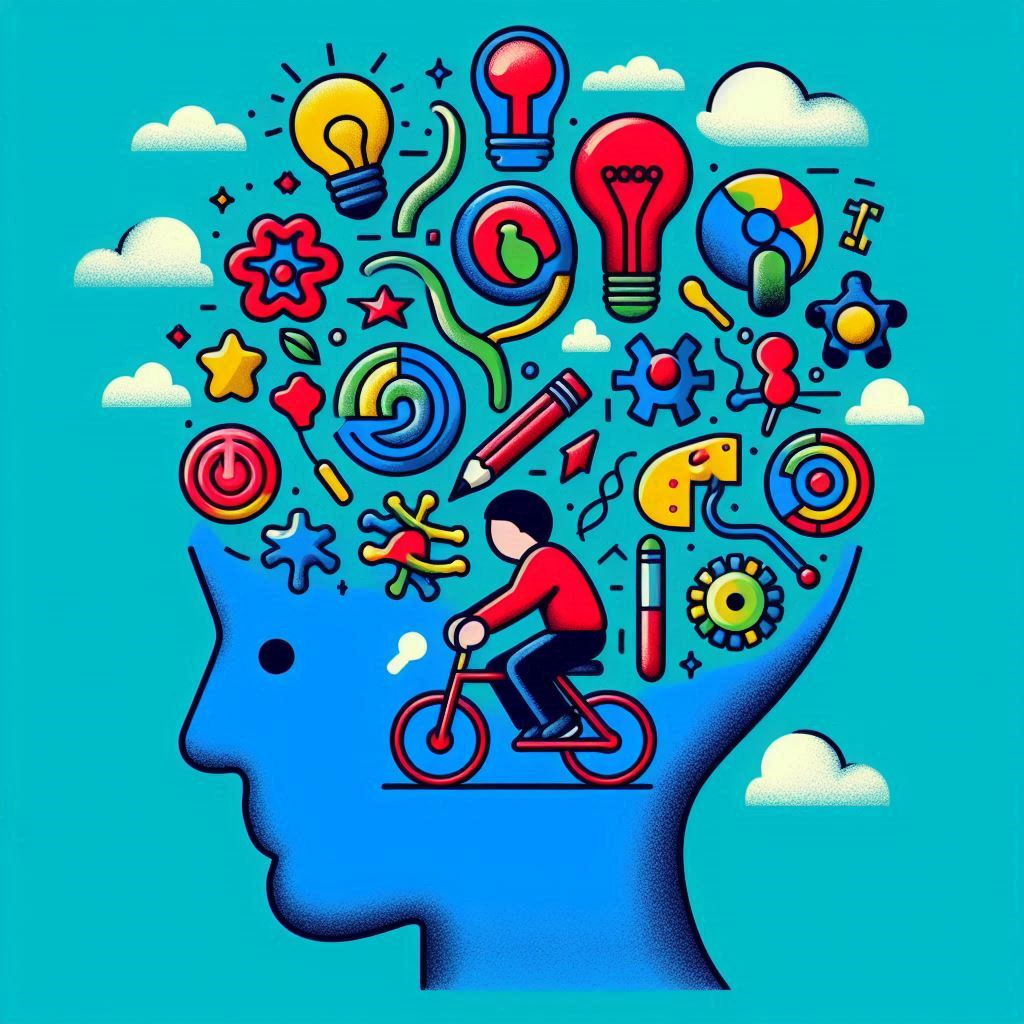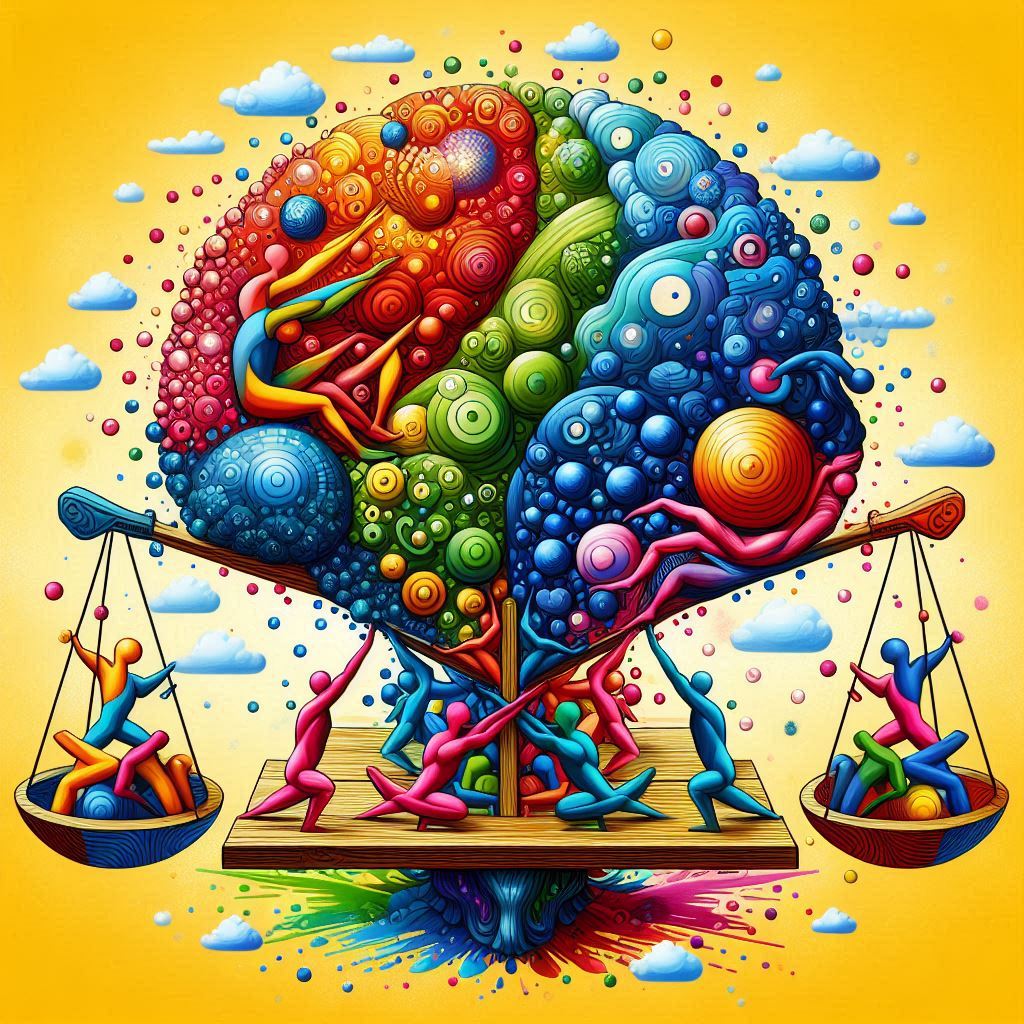Rational vs Logical Thinking for Kids
Have you ever wondered about the difference between rational and logical thinking? It can be a bit confusing, but don’t worry – we’re here to break it down for you.
Understanding the difference between these two types of thinking can help you make better decisions and solve problems more effectively. Let’s explore how rational and logical thinking can help you navigate the world around you!
Understanding the Difference: Logical vs Rational Thinking
The Essence of Logical Thinking
Logical thinking follows strict principles of validity and sound reasoning. Rational thinking includes reason, knowledge, emotions, and personal values. When making decisions, a rational thinker considers facts, values, and feelings for a balanced judgment. Critical thinking enhances rationality and logical reasoning. It encourages questioning assumptions, evaluating evidence, and considering alternative perspectives.
Critical thinking trained individuals are more willing to acknowledge biases and emotions for a balanced conclusion. Debate and ‘link chess’ hone rational skills and promote balanced thought by allowing defending and critiquing viewpoints. These activities help individuals develop and apply logical and rational thinking in daily life.
The Basis of Rational Thinking
Rational thinking is about making decisions based on reason and knowledge. Logical thinking follows strict principles of validity.
When faced with a problem, a rational thinker considers multiple perspectives and potential outcomes before concluding. Critical thinking can enhance rationality by encouraging individuals to evaluate and analyze information before drawing conclusions.
Through critical thinking, individuals can identify biases and fallacies in their reasoning, thus improving the overall rationality of their thought process.
It’s important to be aware of common misconceptions and pitfalls in merging reason and logic.
Understanding the differences between logical and rational thinking and employing critical thinking skills can greatly enhance decision-making and problem-solving quality.
Using Critical Thinking to Enhance Rationality

Critical thinking is important for rational decision-making and problem-solving. Rational thinkers analyze all available information before making a decision. In everyday situations, individuals can use logic and reason by identifying biases, avoiding emotional reasoning, and evaluating the reliability of sources. Reflecting on personal values and emotional responses is also part of this process.
Parents and educators can help children develop logical and rational thinking skills by exposing them to diverse perspectives, encouraging open-mindedness, and providing structured reasoning and analysis opportunities. This way, children can learn to think critically and form sound judgments based on evidence and reason.
Dialectical Reasoning: The Confluence of Logic and Rationality

Dialectical reasoning combines logic and rationality to form a well-rounded argument. Logical thinking follows a step-by-step process to reach a sound conclusion, while rational thinking integrates personal values and emotions into the argument. Understanding these nuances helps individuals engage in dialectical reasoning, improving their ability to spot and fix mistakes in their arguments.
Real-world examples like legal debates and scientific discourse show the importance of dialectical reasoning in different fields. In legal debates, lawyers construct arguments based on logic and reason while also appealing to the emotions and experiences of the jury. In scientific discourse, researchers use logical thinking to draw valid conclusions from their data while also considering their findings’ ethical implications and broader societal impact. This shows how dialectical reasoning plays a vital role in various fields.
Recognizing and Addressing Illogical Thinking in Children

Real-World Examples to Illustrate Thinking Processes
Real-world examples are great for teaching young kids about logical thinking. Educators can use everyday situations to show students how to solve problems analytically.
Games like “link chess” help build rational skills. This game prompts players to think ahead, predict outcomes, and make strategic decisions—all crucial for rational thinking. Similarly, card games like solitaire challenge players to map out and weigh potential moves, and adapt their strategy on the fly, all essential for sharpening rational decision-making.
Educators can help kids avoid misunderstandings and mistakes by mixing reason and logic. Discussing common misconceptions and demonstrating the right way to approach problems can guide young minds away from quick assumptions and emotional decision-making.
Creating Reasonable Arguments vs. Upholding Absurdities
Creating reasonable arguments involves presenting facts, evidence, and logical reasoning to support a specific claim. Upholding absurdities often relies on fallacious reasoning, misleading evidence, and emotional manipulation.
Logical and rational thinking skills can be developed through practice, exposure to critical thinking tools, and seeking to understand different perspectives. Engaging in debate and ‘link chess’ can enhance rational thinking by challenging individuals to think critically.
These activities also help individuals evaluate evidence and consider opposing viewpoints in a structured setting. It allows participants to learn how to create sound, evidence-based arguments and develop the ability to spot fallacies and illogical reasoning in discussions.
How Debate and ‘Link Chess’ Develop Rational Skills
Debating and playing ‘Link Chess’ can help improve rational skills. This includes critical thinking and strategic decision-making. These activities involve thoroughly evaluating various perspectives, constructing coherent arguments, and anticipating possible responses. Individuals can develop rational thinking skills like reasoning, problem-solving, and logical analysis.
Children can apply deductive reasoning to draw logical conclusions and improve inductive reasoning by identifying patterns and making informed predictions.
Additionally, these activities encourage participants to manage their emotions, demonstrate resilience, and exhibit patience when considering opposing viewpoints. This helps cultivate empathetic and self-aware rational thinkers.
Fostering Balanced Thought: Merging Reason and Logic

Ingenious Ways to Teach Kids Logic and Reason
Real-world examples can show how kids think logically. For instance, they can organize a bookshelf or plan a family outing. This helps them understand problem-solving using reasoning and logical steps.
Kids can also learn logical reasoning through puzzles, games, and riddles. Discussing different topics can also help them improve their critical thinking skills.
To teach kids logic and reason, it’s essential to avoid oversimplifying concepts. Also, consider their emotions and preferences. Don’t impose rigid reasoning structures.
A balanced approach that includes empathy, creativity, and flexibility is vital for nurturing logical and rational thinking in children.
Common Misconceptions and Pitfalls to Avoid
Some common misconceptions about logical and rational thinking:
- People think they are interchangeable and always lead to the same conclusions.
- In reality, logical thinking follows strict validity rules and doesn’t consider emotions or personal beliefs.
- Rational thinking involves using reason and knowledge while factoring in emotions and values.
To improve logical and rational thinking skills, it’s essential to avoid certain pitfalls:
- Overreliance on one type of reasoning.
- Failing to consider opposing viewpoints.
- Giving in to emotional biases or fallacies.
Individuals can recognize and address illogical thinking in themselves and others by:
- Learning to identify common logical fallacies.
- Questioning assumptions.
- Seeking out diverse perspectives.
- Remaining open-minded to alternative possibilities.

Vizologi is a revolutionary AI-generated business strategy tool that offers its users access to advanced features to create and refine start-up ideas quickly.
It generates limitless business ideas, gains insights on markets and competitors, and automates business plan creation.


